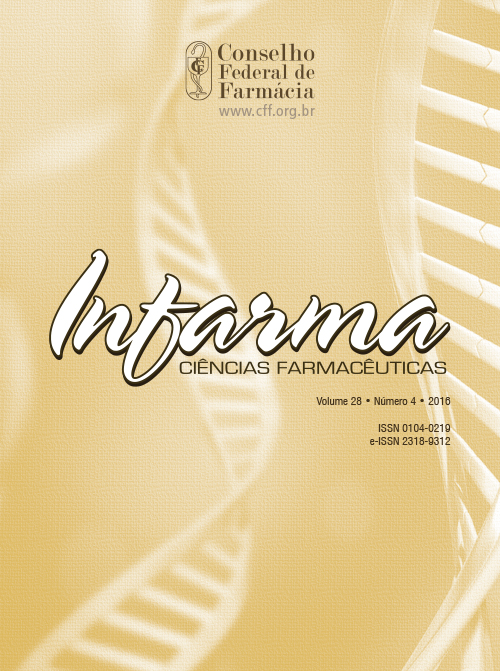PSEUDOMONAS AERUGINOSA IN A HOSPITAL FROM THE MICROREGION OF OURO PRETO, MINAS GERAIS, BRAZIL
DOI:
https://doi.org/10.14450/2318-9312.v28.e4.a2016.pp234-240Keywords:
Pseudomonas aeruginosa, hospital infection, Hospital Laundry Service, microbiology waterAbstract
Water is the main source of transmission of micro-organisms in health centers, which can cause infections that are a serious issue for public health. The goal of this study was to evaluate the microbiological quality of water used in
a hospital of the microregion of Ouro Preto, Minas Gerais, Brazil. Twelve water samples were collected at different points for the detection of total and fecal coliforms, as well as other micro-organisms; in addition, antimicrobial susceptibility tests were also performed. The bacterial species Pseudomonas aeruginosa was detected in the sample from the rinse water of clean clothes collected in the laundry’s clean area and it was identified by Gram stain and automated analysis using VITEK® equipment. The strain of P. aeruginosa showed sensitivity to the antibiotics commonly used to treat infections induced by this bacterium, such as cephalosporins, fluoroquinolones, carbapenems and polymyxins. However, the results indicate the need for a greater attention to the process of cleaning of hospital clothing, a fact that is still neglected in Brazil.
Downloads
Published
How to Cite
Issue
Section
License
Authors who publish in this journal agree to the following terms:
- Authors retain the copyright and grant the journal the right of first publication, with the work simultaneously licensed under the Licença Creative Commons Attribution which allows the sharing of work with acknowledgment of authorship and initial publication in this journal.
- Authors are authorized to take additional contracts separately, for non-exclusive distribution of the version of the work published in this journal (e.g. publish in institutional repository or as a book chapter), with acknowledgment of authorship and initial publication in this journal.
- Authors are allowed and encouraged to publish and distribute their work online (e.g. in institutional repositories or on their personal page) at any point before or during the editorial process, as this can generate productive changes as well as increase the impact and Citation of published work (See O Efeito do Acesso Livre ).


